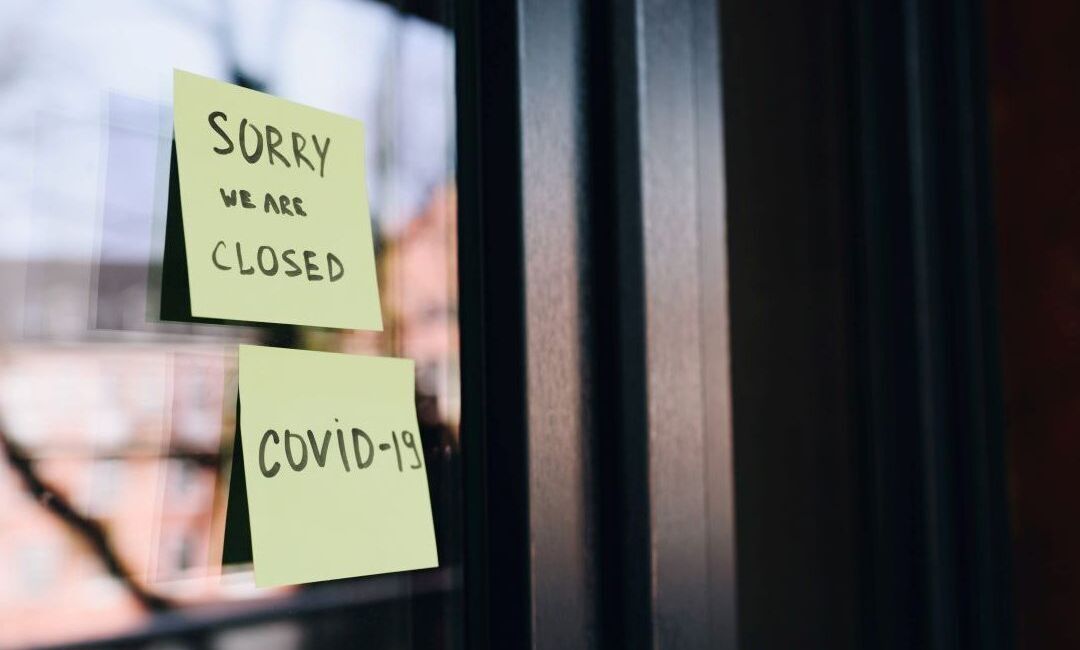What I do know from experience is that the tone we set when discussing difficult topics matters.
What can I do in the face of all the bad news?

In recent days, coronavirus has appeared in nearly every communication I’ve received. It’s hard to stay calm when constantly being bombarded with anxiety-inducing news.
I’m not a scientist or medical expert. There are much smarter people around the world working tirelessly to illuminate the realities of the disease and its effects on health and the global economy.
What I do know from experience is that the tone we set when discussing difficult topics matters.
In times of uncertainty, tone matters even more. Anxiety and pessimism cloud our judgment and decrease the productivity of our conversations. Fear fuels misinformation, cause us to blame others, and impedes solution-focused thinking.
I want to do everything in my power to improve the quality of conversations around me, and I don’t want to feel helpless. Amid the consistent stream of news about coronavirus, here are some things I’m thinking about:
Preserving our connections
Have you heard about the “Wuhan shake” and other new greetings? Coverage of this phenomenon reminded me just how well we can adapt to changing circumstances, particularly when we crave connection in times of fear. We have set aside the centuries-old habit of shaking hands to protect our health, but expressions of friendship, hospitality, and social trust are not as easily discarded.
We’ve seen creative approaches to providing entertainment and education as events are cancelled and gathering places are closed. The “show must go on” attitude in the arts world, for instance, has prompted live-streamed performances from empty venues, workshops via social media, and artist-curated playlists to entertain those quarantined.
Human creativity and new technology
We often encounter concern in media about artificial intelligence and other technology. In the midst of reports about coronavirus, though, it’s worth remembering that new technology has the potential to save lives and minimize risks.
The Economist recently reported that cyber-care is making a difference. Urgent needs may be prompting telemedicine firms to “behave like good corporate citizens,” and the Chinese government has loosened regulations around online medical care.
There are some fascinating disruptive innovations with a lot of promise in TIME’s list of 12 Innovations That Will Change Health Care and Medicine in the 2020s. Human creativity is transforming medicine at a “remarkable pace.”
Realize we can have impact
Perhaps we can have conversations about how our individual responses – personally and within our local communities – influence how we, as a society, respond in times of crisis.
One approach might be to explore with those around us how we can strengthen community ties and prepare local businesses. How might “social distancing” affect our relationships? What would withdrawal from economic activity mean for those of us (or our neighbors) who work in face-to-face service industries?
This thought-provoking piece in The Atlantic considers how threats like coronavirus bring to light the strengths and weaknesses of particular societies: “Epidemics, like disasters, have a way of revealing underlying truths about the societies they impact.” Let’s talk with one another about what we think those underlying truths are.
Those would be conversations with some potential for good news.
5 links worth your time
1, 2, and 3. On the price of Purell. Headlines note that Amazon can’t control price gouging on hand sanitizer. Is raising the price on in-demand goods immoral or does “price gauging” actually tell us valuable information about the needs of consumers? Do anti-gouging laws help or hurt?
4. An in-depth look at American restaurants, one of the face-to-face service industries mentioned above, which “are an at-risk population even in more stable times, in part because their owners embody the American ethos of the independent, can-do spirit, which means they have no safety net.”
5. New creative approaches to medical care – Seattle opens the first drive-thru style virus testing center in the US. “Employees at a Seattle-area hospital are now getting tested at the United States’ first drive-thru coronavirus clinic — a novel approach to testing that minimizes the chances of spreading the respiratory illness.”